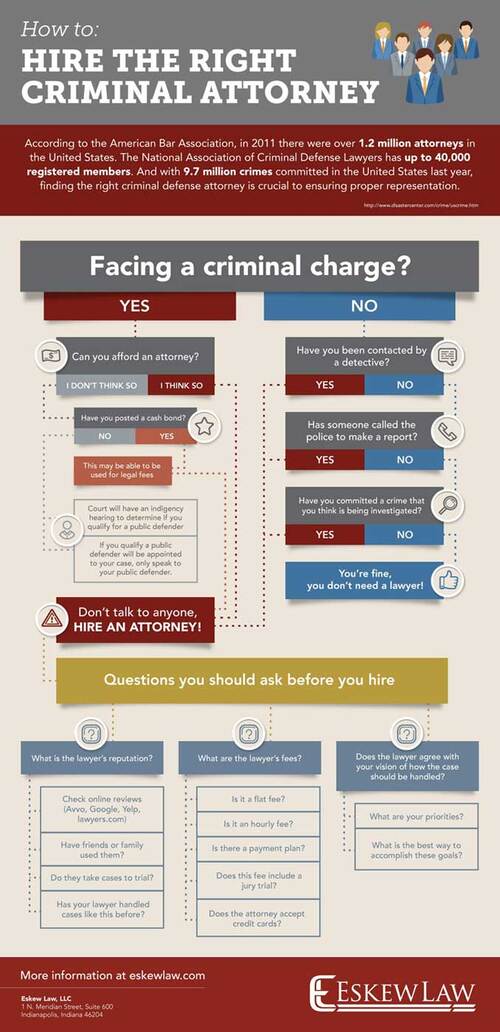The Importance Of Proof In Criminal Protection: Essential Insights You Need To Take Into Consideration

Post Composed By-Fisher Coleman
When you consider criminal protection, proof is usually the first thing that comes to mind, and for good reason. It's the foundation whereupon your case stands, forming the narrative and affecting the court's understanding. Different kinds of evidence, from physical to electronic, each play an one-of-a-kind function in developing a defense. But not all evidence is dealt with just as; admissibility criteria can make or break your defense strategy. Comprehending these subtleties is critical, specifically when thinking about exactly how they can impact the outcome of a trial. So, what should you know about these standards?
Types of Evidence
When it concerns criminal defense, recognizing the kinds of proof can make all the distinction in your case. Evidence comes under a number of groups, each playing a vital duty in establishing the realities of your situation.
One common kind is testimonial evidence, that includes declarations made by witnesses. Their accounts can provide insight into what took place and can either support or test the prosecution's cases.
Physical evidence is an additional critical kind, incorporating tangible items like tools, garments, or finger prints. This type of evidence can directly connect you to a criminal offense or aid refute claims against you.
Then there' click to read , which includes records, photos, or any kind of written materials important to your situation. These records can provide a timeline or context that's necessary for your defense.
Lastly, you can't ignore electronic evidence, that includes information from smart devices, computer systems, or social media sites. This sort of proof can reveal crucial info concerning your activities or communications.
Admissibility Requirements
In criminal protection, the admissibility of evidence is critical to your situation's result. You'll need to understand the requirements that identify whether evidence can be utilized in court. Normally, proof needs to be relevant, reputable, and gotten lawfully to be taken into consideration admissible.
Significance indicates the proof should directly associate with the case and help prove or refute a reality moot. If it does not attach to your protection or the costs against you, it may be left out.
Reliability guarantees that the proof is reputable and trustworthy; as an example, eyewitness testimony can be called into question if the witness has a background of unreliable accounts.
Furthermore, evidence must be gathered based on lawful procedures. Any kind of proof obtained with prohibited methods, such as an illegal search or seizure, may be considered inadmissible under the exclusionary regulation.
Recognizing these standards can empower you to work successfully with your attorney. They'll browse the complexities of these policies to reinforce your protection, guaranteeing just the very best evidence is presented in your support.
Constantly bear in mind, the admissibility of evidence can dramatically influence the jury's understanding of your instance.
Impact on Defense Methods
The admissibility of evidence straight forms your defense methods. When evidence is considered acceptable, you can use it to construct a strong case. On the other hand, if proof is ruled inadmissible, you need to pivot your technique. Comprehending what evidence the prosecution can provide assists you expect their arguments and prepares you to counter them efficiently.
You'll intend to focus on celebration evidence that supports your defense. This could include witness declarations, specialist statement, or records that obstacle the prosecution's claims. The objective is to produce sensible uncertainty in the minds of the jurors. If particular pieces of evidence are weak or contentious, you might take into consideration a strategy that stresses other solid facets of your case.
Moreover, the kind of proof-- whether it's forensic, testimonial, or digital-- will determine how you connect your protection. You'll require to craft compelling stories that reverberate with the court while making use of acceptable proof to support your insurance claims.
Ultimately, your technique needs to be versatile, allowing you to adapt as brand-new proof comes to light or as rulings are made. Each choice you make must line up with the goal of guaranteeing the best possible result for your instance.
Conclusion
In criminal protection, proof plays an essential function in shaping your case. By understanding the different kinds of proof and their admissibility standards, you can strengthen your defense strategy and create practical uncertainty psychological of jurors. Working together very closely with your legal advice ensures that your proof is presented efficiently and adjusts to any new developments throughout the test. Ultimately, the appropriate evidence can make all the distinction in accomplishing a desirable result.

